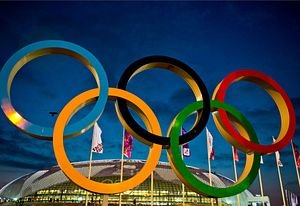Only a few weeks out from the start of the Rio Olympic Games, it’s uncertain how many, if any, Russian athletes will be permitted to participate. A month after the International Olympic Committee (IOC) backed the decision by the International Association of Athletics Federations (IAAF) to ban the Russian track and field team from the Rio Games, an independent report commissioned by the World Anti-Doping Agency (WADA) purports to lay bare a four-year effort on the part of Russian authorities to subvert anti-doping systems.
Named after its author Richard McLaren, the report was commissioned by WADA in May to investigate allegations made by the former director of Moscow’s anti-doping laboratory, Grigory Rodchenkov (and reported by 60 Minutes and The New York Times) that the Russian government systematically tampered with anti-doping systems in order to allow athletes using performance-enhancing drugs to compete in the 2014 Winter Olympics, hosted by Russia in the Black Sea city of Sochi.
The McLaren report (PDF) is 103-pages long and details what amounts to a whole-of-government effort to swap out and tamper with urine samples. The investigation, initially targeted at specific allegations with regard to the Sochi Games, soon uncovered a wider conspiracy:
The Sochi Laboratory urine sample swapping scheme was a unique standalone approach to meet a special set of circumstances. Behind this lay a greater systematic scheme operated by the Moscow Laboratory for false reporting of positive samples supported by what the IP termed the disappearing positive methodology.
The system was simple: all positive results from first screenings at the Moscow laboratory were reported to the Deputy Minister of Sport. The deputy minister would issue an order in code, either “save” for those whose results would be falsified as negatives in the reporting system or “quarantine” for those whose samples wouldn’t be tampered with. The deputy minister “decided who would benefit from a cover up and who would not be protected,” the McLaren report says.
For international events–with independent observers–a different system was put in place, utilizing the skills of the Federal Security Service (FSB), the successors to the Soviet-era KGB. According to the McLaren report, “[t]he FSB developed a method to surreptitiously open the urine bottles to enable sample swapping.” Once that method was developed the swapping was carried out at the Sochi Games to protect a pre-selected list of Russian athletes.
The report notes that the so-called Disappearing Positive Methodology came into use “following the very abysmal medal count by the Russian Olympic athletes participating in the 2010 Winter Olympic Games in Vancouver.”
In response to the McLaren report, WADA recommended that Russia be banned from the Rio Olympics, Paralympics, and other international sporting events. WADA also urged the continuation of McLaren’s investigation. The IOC supported a continuation of McLaren’s investigation but delayed banning the Russians entirely. The IOC said it “will explore the legal options with regard to a collective ban of all Russian athletes for the Olympic Games 2016 versus the right to individual justice.”
Moscow, for its part, has become increasingly frustrated by additional doping reports and deeper allegations. Russian President Vladimir Putin responded quickly to the McLaren report and attendant recommendations with a statement that started by referencing the tit-for-tat Cold War Olympic boycotts. Athletes “became hostages of political confrontation” through the boycotts, Putin argues. Russia characterizes the long list of doping allegations as targeted and political, calling out the U.S. Anti-Doping Agency in particular for calling for a ban of the Russian team before the WADA report:
What is behind this haste? Is it an attempt to create the needed media atmosphere and apply pressure? We have the impression that the USADA experts had access to what is an unpublished report at the very least, and have set its tone and even its content themselves. If this is the case, one country’s national organization is again trying to dictate its will to the entire world sports community.
The Russian Olympic Committee also fired back, like Putin, declaring the crucial witness of Rodchenkov as unreliable. McLaren may have declared Rodchenkov a reliable witness, but the Russians say he is a criminal.
To say the least, a full ban at Rio would be a significant humiliation for Russia. Sports–and the Olympics in particular–are exceedingly popular in the former Soviet space and Russia has invested massively in holding its perceived place of prominence on the global athletic stage. The IOC did not clarify when it would made a decision regarding a full ban, but time is running out. The Rio Games begin on August 5.

































